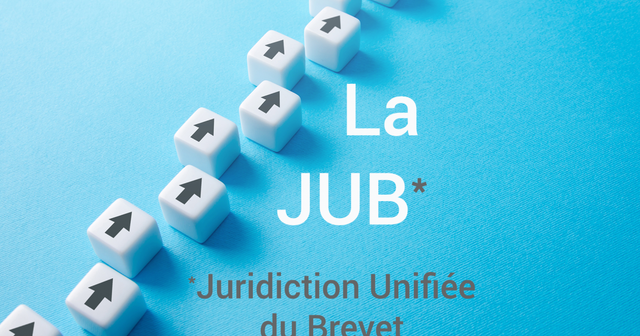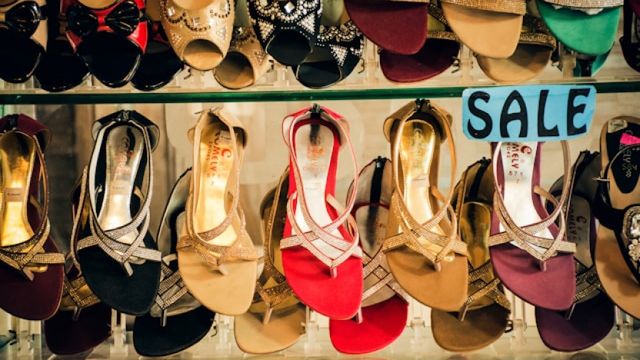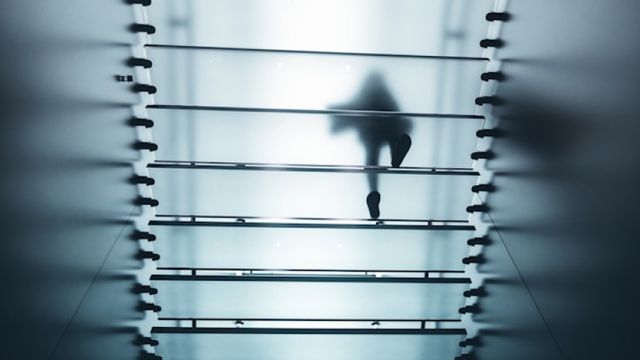
Actualités
Inscrivez-vous à notre newsletter mensuelle, pour ne pas manquer les conseils de nos experts, nos webinaires et l'actualité dédiés à la Propriété Intellectuelle.
Recherche
- Article
- Blog | Flash infos
- Webinaire
- Livre blanc
- Témoignage
- Événement
Ressources (1067)
![[Webinaire] La Propriété Intellectuelle et le Brexit](https://novagraaf-staging.s3.eu-west-3.amazonaws.com/small_image_2911209802.png) Webinaire[Webinaire] La Propriété Intellectuelle et le BrexitDiffusé pour la première fois le 13 mars 2019, ce webinaire explique l'état des négociations de Brexit (au 13 mars) et les plans qui ont été mis en place pour le clonage des droits de propriété intell...Regardez maintenant
Webinaire[Webinaire] La Propriété Intellectuelle et le BrexitDiffusé pour la première fois le 13 mars 2019, ce webinaire explique l'état des négociations de Brexit (au 13 mars) et les plans qui ont été mis en place pour le clonage des droits de propriété intell...Regardez maintenant De l’exécution forcée des décisions de l’INPI et de l’EUIPOMarques, dessins et modèlesLes décisions de l’EUIPO, ainsi que les décisions de l’INPI en matière de déchéance et de nullité peuvent comporter des dispositions condamnant la partie perdante à prendre à sa charge les frais expos...Lire la suite
De l’exécution forcée des décisions de l’INPI et de l’EUIPOMarques, dessins et modèlesLes décisions de l’EUIPO, ainsi que les décisions de l’INPI en matière de déchéance et de nullité peuvent comporter des dispositions condamnant la partie perdante à prendre à sa charge les frais expos...Lire la suite Quand la lenteur judiciaire menace le droit de propriété sur une marqueMarques, dessins et modèlesEn tant que juriste, il nous arrive d’être confrontés à une situation critique lorsque la solution « juste » paraît évidente, mais que le texte de loi ne permet pas forcément d’y parvenir. Il est alor...Lire la suite
Quand la lenteur judiciaire menace le droit de propriété sur une marqueMarques, dessins et modèlesEn tant que juriste, il nous arrive d’être confrontés à une situation critique lorsque la solution « juste » paraît évidente, mais que le texte de loi ne permet pas forcément d’y parvenir. Il est alor...Lire la suite- Blog | Flash infos[Blog] Suisse : Procédure accélérée en matière de nullitéDepuis le 9 décembre 2025, la Suisse accélère les actions en nullité liées à la contrefaçon : décision attendue en un an maximum, sans audience d’instruction et avec des délais strictement encadrés. U...Lire la suite
- Blog | Flash infos[Blog] L'ICANN sévit contre les Registrars défaillantsICANN renforce la discipline début 2026 : résiliation du registrar hongkongais 0101 Internet pour impayés et défaut de migration RDAP, mise en demeure de MainReg Inc., dont près de la moitié des domai...Lire la suite
- Blog | Flash infos[Blog] Extension de l’utilisation de l’IA pour la rédaction des procès-verbaux de procédures orales à l’OEBDepuis mai 2025, environ 150 procédures orales ont été conduites dans le cadre d’un projet pilote visant à assister la rédaction des procès-verbaux au moyen d’outils d’intelligence artificielle. À la ...Lire la suite
 Client-attorney privilege en matière de brevets : portée, limites et bonnes pratiquesBrevetsFace à la multiplication des litiges internationaux en matière de brevets, les entreprises européennes sont de plus en plus exposées aux procédures de discovery, notamment aux États-Unis. Dans ce cont...Lire la suite
Client-attorney privilege en matière de brevets : portée, limites et bonnes pratiquesBrevetsFace à la multiplication des litiges internationaux en matière de brevets, les entreprises européennes sont de plus en plus exposées aux procédures de discovery, notamment aux États-Unis. Dans ce cont...Lire la suite Réforme du programme PACE de l’OEB : quels impacts pour votre stratégie brevets ?BrevetsÀ compter du 1er février 2026, de nouvelles règles sont entrées en vigueur pour les demandeurs de brevets utilisant le programme PACE de l’Office européen des brevets (OEB). Marion Bénetière explique ...Lire la suite
Réforme du programme PACE de l’OEB : quels impacts pour votre stratégie brevets ?BrevetsÀ compter du 1er février 2026, de nouvelles règles sont entrées en vigueur pour les demandeurs de brevets utilisant le programme PACE de l’Office européen des brevets (OEB). Marion Bénetière explique ...Lire la suite La feuille de route de la juridiction unifiée du brevet (JUB)BrevetsL’entrée en vigueur de l’accord de la JUB est actuellement prévu pour le 1er avril 2023. Vous trouverez dans cet article nos publications pour suivre en temps réel la feuille de route de la juridictio...Lire la suite
La feuille de route de la juridiction unifiée du brevet (JUB)BrevetsL’entrée en vigueur de l’accord de la JUB est actuellement prévu pour le 1er avril 2023. Vous trouverez dans cet article nos publications pour suivre en temps réel la feuille de route de la juridictio...Lire la suite La protection des dessins et modèles à l'épreuve de la « fast fashion »Marques, dessins et modèlesDans un arrêt du 18 décembre 2025 (Deity Shoes, S.L. c/ Mundorama Confort, S.L. et al., aff. C-323/24), la Cour de justice de l’Union européenne précise les notions de création et de caractère individ...Lire la suite
La protection des dessins et modèles à l'épreuve de la « fast fashion »Marques, dessins et modèlesDans un arrêt du 18 décembre 2025 (Deity Shoes, S.L. c/ Mundorama Confort, S.L. et al., aff. C-323/24), la Cour de justice de l’Union européenne précise les notions de création et de caractère individ...Lire la suite JUB : clés d’analyse de l’activité inventiveBrevetsSylvain Dubois analyse deux arrêts clés rendus le 25 novembre 2025 par la Cour d’appel de la JUB, Meril v Edwards et Amgen v Sanofi/Regeneron, qui consacrent une approche désormais structurée et « glo...Lire la suite
JUB : clés d’analyse de l’activité inventiveBrevetsSylvain Dubois analyse deux arrêts clés rendus le 25 novembre 2025 par la Cour d’appel de la JUB, Meril v Edwards et Amgen v Sanofi/Regeneron, qui consacrent une approche désormais structurée et « glo...Lire la suite DIAGNOSTIC PI - Un levier pour la croissance des TPE, PME et ETI innovantes avec BpifrancePME et start-up,BrevetsBénéficiez d’une prestation d’analyse et de conseil réalisée par l’un de nos experts en protection, structuration et valorisation de la propriété intellectuelle (PI), financée par Bpifrance à hauteur ...Lire la suite
DIAGNOSTIC PI - Un levier pour la croissance des TPE, PME et ETI innovantes avec BpifrancePME et start-up,BrevetsBénéficiez d’une prestation d’analyse et de conseil réalisée par l’un de nos experts en protection, structuration et valorisation de la propriété intellectuelle (PI), financée par Bpifrance à hauteur ...Lire la suite Post-Brexit : Fin de la période transitoire pour les marques clonéesMarques, dessins et modèlesAvec la fin imminente de la période transitoire pour les marques clonées au Royaume-Uni, celles-ci pourraient devenir vulnérables aux actions en déchéance pour non-usage.Lire la suite
Post-Brexit : Fin de la période transitoire pour les marques clonéesMarques, dessins et modèlesAvec la fin imminente de la période transitoire pour les marques clonées au Royaume-Uni, celles-ci pourraient devenir vulnérables aux actions en déchéance pour non-usage.Lire la suite- Blog | Flash infosPost-Brexit : fin de la période transitoire pour les marques clonéesÀ compter du 1er janvier 2026, la période transitoire post-Brexit prend fin : les marques clonées au Royaume-Uni devront justifier d’un usage effectif au Royaume-Uni. À défaut, elles pourront être ann...Lire la suite
- Blog | Flash infosArgentine : Procédure d’enregistrement des marquesL’INPI argentin réforme l’examen des marques (Rés. 583/2025) : certains motifs de refus ne sont plus examinés d’office et relèvent désormais de l’opposition. Dès le 1er mars 2026, l’examen de fond aur...Lire la suite
- Blog | Flash infosRoyaume Uni : Les nouvelles exigences de l’autorité de dépôt de micro-organismes en procédure de BrevetLe Royaume-Uni a notifié à l’OMPI des modifications concernant les exigences et les taxes du CABI Bioscience (IMI), autorité de dépôt internationale au titre du Traité de Budapest. Les nouvelles règle...Lire la suite
 PASS PI - Un soutien financier pour intégrer la PI à votre stratégie d’entreprisePME et start-upNovagraaf, avec ses Conseils en Propriété Industrielle référencés à l’INPI, vous accompagne pour bénéficier du Pass PI, un dispositif qui finance partiellement vos dépôts de brevets et d’autres presta...Lire la suite
PASS PI - Un soutien financier pour intégrer la PI à votre stratégie d’entreprisePME et start-upNovagraaf, avec ses Conseils en Propriété Industrielle référencés à l’INPI, vous accompagne pour bénéficier du Pass PI, un dispositif qui finance partiellement vos dépôts de brevets et d’autres presta...Lire la suite SME FUND - Une aide bienvenue pour les PME européennesPME et start-upLes petites et moyennes entreprises (PME) européennes peuvent bénéficier d’un remboursement sur leurs dépôts de brevets, marques ou dessins et modèles, afin de booster la protection de leurs droits de...Lire la suite
SME FUND - Une aide bienvenue pour les PME européennesPME et start-upLes petites et moyennes entreprises (PME) européennes peuvent bénéficier d’un remboursement sur leurs dépôts de brevets, marques ou dessins et modèles, afin de booster la protection de leurs droits de...Lire la suite- Blog | Flash infosQuand la distance entre les produits fait oublier à l'EUIPO la force intrinsèque d'une marque de renomméeLe TUE (aff. T-565/24) annule la décision de l’EUIPO et rappelle que la renommée d’une marque, même sur des produits différents, justifie une protection élargie. L’EUIPO avait erronément privilégié la...Lire la suite
- Blog | Flash infosIndonésie : Nouvelle exigence de Working Statement pour les titulaires de brevetsL’Indonésie impose désormais un working statement annuel pour tous les brevets délivrés. Les titulaires doivent déclarer l’exploitation locale ou l’absence d’usage via la plateforme du DGIP. Première ...Lire la suite